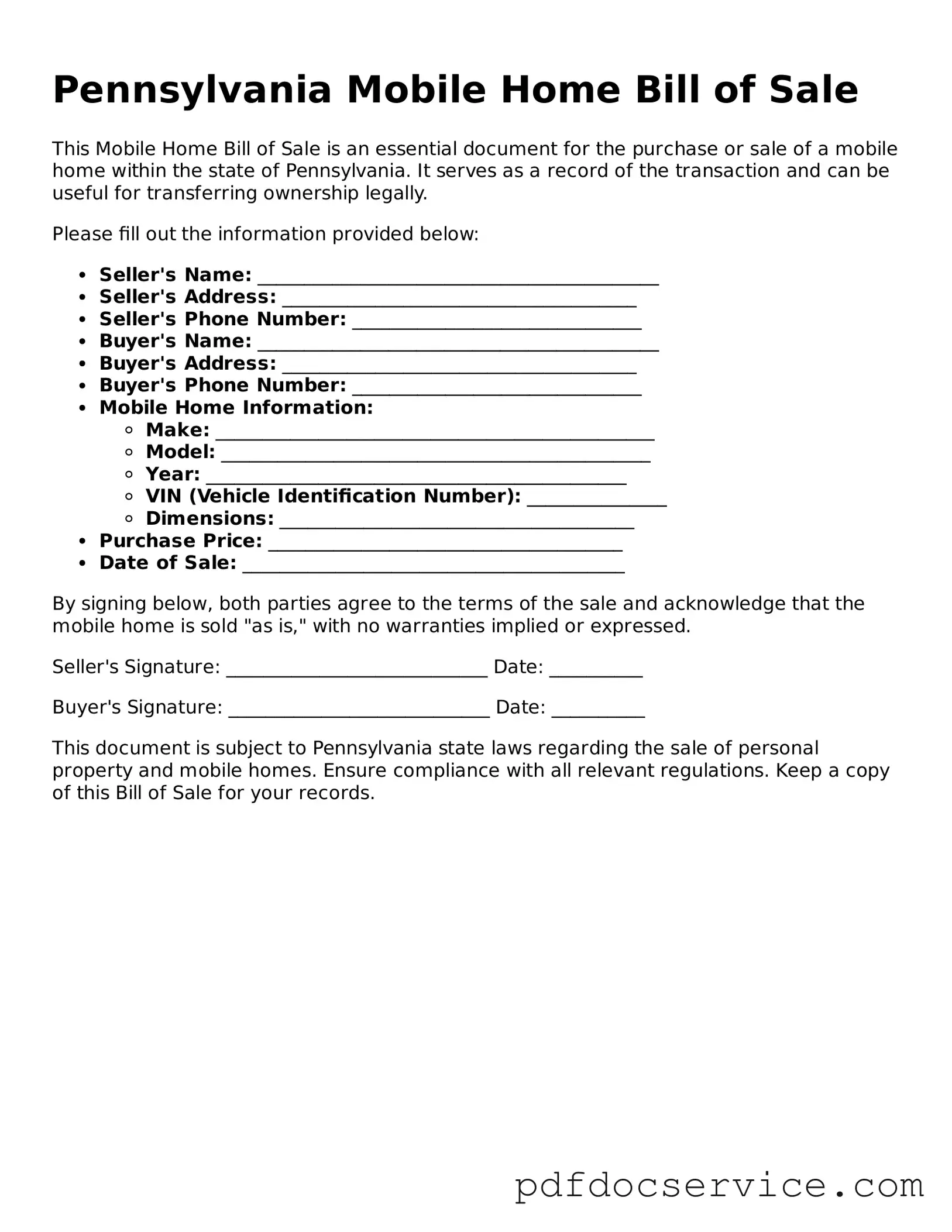What is a Mobile Home Bill of Sale in Pennsylvania?
A Mobile Home Bill of Sale is a legal document that serves as proof of the sale and transfer of ownership of a mobile home from one party to another. This document is essential for both the buyer and the seller, as it outlines the terms of the sale, including the purchase price, the condition of the mobile home, and any warranties or disclosures made by the seller.
Why do I need a Mobile Home Bill of Sale?
This document is crucial for several reasons:
-
It provides legal proof of the transaction.
-
It protects both parties by clearly stating the terms of the sale.
-
It can be required for registering the mobile home with the state.
-
It helps prevent future disputes regarding ownership or conditions of the sale.
When drafting a Mobile Home Bill of Sale, ensure it includes the following details:
-
The names and addresses of both the buyer and the seller.
-
A description of the mobile home, including its make, model, year, and Vehicle Identification Number (VIN).
-
The purchase price and payment terms.
-
The date of the sale.
-
Any warranties or disclosures regarding the condition of the mobile home.
Do I need to have the Mobile Home Bill of Sale notarized?
While notarization is not a strict requirement for a Mobile Home Bill of Sale in Pennsylvania, it is highly recommended. Having the document notarized adds an extra layer of authenticity and can help prevent disputes in the future. Additionally, some title offices may require a notarized document for processing the transfer of ownership.
While you can use a generic Bill of Sale form, it is advisable to use a specific Mobile Home Bill of Sale template. This ensures that all necessary details relevant to mobile homes are covered. A specialized form will typically include sections that address the unique aspects of mobile home transactions, such as VIN and registration details.
What happens if I lose my Mobile Home Bill of Sale?
If you lose your Mobile Home Bill of Sale, you can request a duplicate from the seller if they still have a copy. If that’s not possible, you may need to create a new Bill of Sale and have both parties sign it again. Keep in mind that having a copy is important for any future transactions or legal matters related to the mobile home.
There is no strict format mandated by Pennsylvania law, but the document should be clear and organized. Include all necessary information in a straightforward manner. Using a template can help ensure that you don’t miss any important details. Remember, clarity is key to avoiding misunderstandings.
Where do I file the Mobile Home Bill of Sale?
After completing the Mobile Home Bill of Sale, it is not typically filed with a government office. However, you will need to present it when applying for a new title or registering the mobile home with the Pennsylvania Department of Transportation (PennDOT). Keeping a copy for your records is also a good practice.

